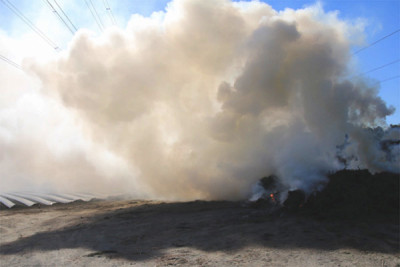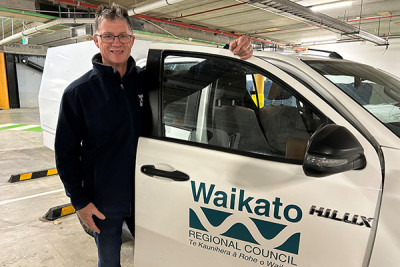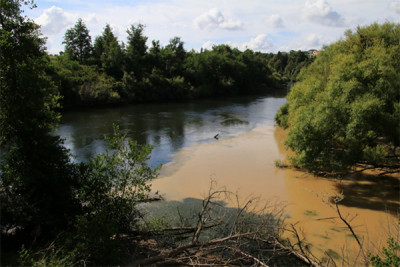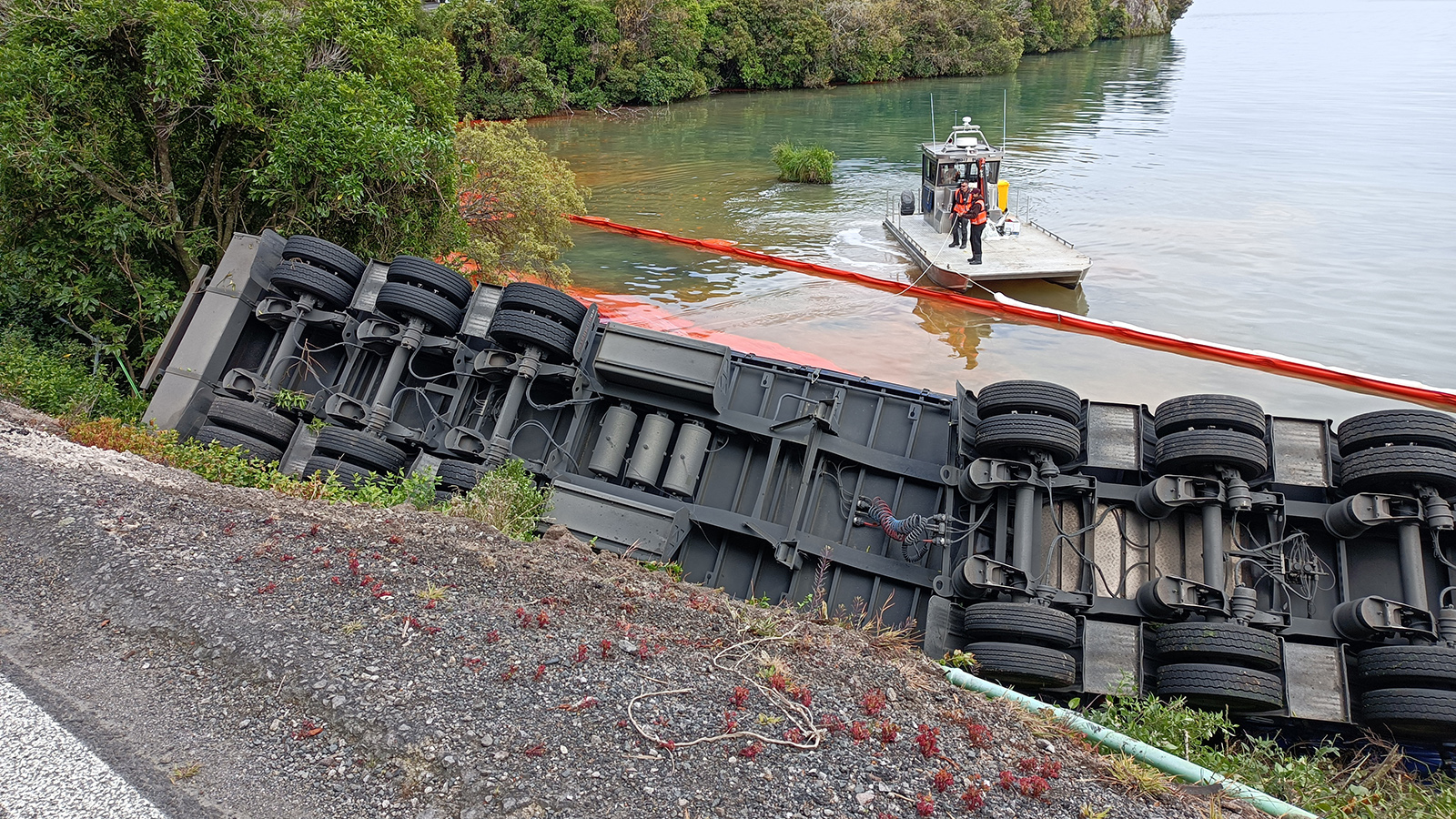“We frequently receive calls meant for other authorities, but what is important is that people call us on our 0800 number at the time they have seen something suspicious or not right. This gives us the best opportunity to triage the incident and respond accordingly”
- Wayne Reed.

Burning of black polythene at a market garden in the Waikato region.
Whenever an environmental incident occurs—whether during a weekday, at night or on a weekend—Waikato Regional Council’s Incident Response specialists are just a phone call away.
“Council staff respond to environmental notifications that involve potentially unlawful discharges to air, water or land in the Waikato region that involve contamination of the environment,” says Wayne Reed, Team Leader, Incident Response.
“Incident calls can come from members of the public, businesses, or authorities such as Fire and Emergency NZ or Police. All after hours calls are routed through a call centre in Palmerston North that serves many councils.”
The Council deals with up to 2000 incidents each year, varying from minor to major incidents.

Wayne Reed, Team Leader, Incident Response
Wayne says the most common incidents are discharges to air, such as smoke from a fire and odours of various kinds.
“Toxic smoke and odours are quite serious because they can directly affect large numbers of people, particularly in urban areas. Discharges to water are also an ongoing issue.
“When we receive a call about an incident, we look at the level of risk or potential risk to the environment and whether the incident falls under the responsibility of Waikato Regional Council, a district or city council, emergency services or another authority.

Sediment in the Waikato River from a burst sediment retention pond from an infrastructural site.
“For example, if a building is on fire, then that’s a matter for Fire and Emergency NZ. If someone is burning rubbish in their backyard, the local district or city council will respond to a complaint. Where a fire is causing adverse effects beyond a single property boundary, then Waikato Regional Council will get involved.
Wayne acknowledges that outside of obvious emergencies, it can be difficult for a member of the public faced with an unfolding incident to know for sure who to contact.
“We frequently receive calls meant for other authorities, but what is important is that people call us on our 0800 number at the time they have seen something suspicious or not right. This gives us the best opportunity to triage the incident and respond accordingly,” says Wayne.
“The easiest way to remember who to contact, outside of emergencies, is that if an incident is a problem to the environment then contact Waikato Regional Council. If it’s a municipal issue or related to litter, it will relate to your district or city council.”
When Waikato Regional Council responds to an incident on site, staff first check for any environmental impact and also have a role in gathering sufficient information from what has occurred.
“We work closely with the emergency services and can direct site staff to take various actions to mitigate an environmental situation,” says Wayne.
“If there has been a breach of environmental regulations we decide whether to take an educational approach with the individual or business potentially responsible for an incident, or consider enforcement action.
“Staff need to gather accurate information from the site such as notes, photos, samples of contamination and interviews with witnesses and potentially liable parties, all of which can be used as the basis, for example, of an abatement notice, a formal warning, an infringement notice, or a prosecution.”
Wayne says the work of the incident response team is often challenging and involves making critical decisions sometimes in high pressure and trying circumstances.
"It may sound corny, but we see ourselves as very much a voice for the environment.”
A recent incident the team responded to was a large fire at a boat shop in Te Rapa, Hamilton in December last year a little after 5pm. The fire was “spewing a large cloud of smoke into the sky” according to local media.
The fire service issued an emergency text alert warning of toxic smoke drifting over some suburbs and advising people to stay inside with all windows and doors closed.
This was an incident that involved multiple authorities, including emergency services and Waikato Regional Council.
Another example of an environmental incident the team dealt with was when a B-train truck and trailer tipped off State Highway One into Lake Taupō in the early hours of a Sunday in November 2022.
The vehicle came to a halt completely on its side, half-submerged in water. Its cargo—including around 13 tonnes of krill oil, three tonnes of frozen meat and 300 kilograms of milk powder—went into the waters of Lake Taupo. One of the highly visible environmental impacts was that the krill oil coloured the water bright orange.
Council worked with their partners, such as the local Iwi, Lake Taupō Harbourmaster, New Zealand Transport Agency, Fire Service and Police, on the response. Responses included the Harbourmaster setting up booms to encircle the spillage, while council staff put up a drone to track the milk powder as it dispersed.
Council is able to provide a 24/7 response through the operation of a Ready Response Team which extends weekday operations into nights and weekends.
A team of 27 staff volunteer to be on the after-hours roster, with Ready Response Team members ranging in age from early 20s to mid-60s. They are drawn from the Council’s Resource Use Directorate, teams as diverse as Incident Response, Investigations, Consenting, Consent Monitoring, and Rural Compliance. Other team members are based elsewhere in the council but have a background in the Directorate.
“It's a huge commitment from staff to be on call for a week at a time and juggle their business-as-usual work alongside their personal lives,” says Wayne.
Wayne says he’s proud of the incident response team: "Seeing them grow professionally is really rewarding. What they do is something you can't learn in a classroom.”
Wayne has been at the Council’s Resource Use Directorate for the past 12 years, initially as an Investigator and, since 2018, as a Team Leader.
Contact us to report an environmental incident:
Ring our 24/7 freephone number: 0800 800 401

